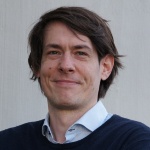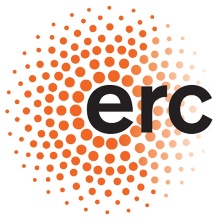In the microscopic world ruled by quantum mechanics nature can behave in ways that are very different from our everyday experience. A particularly fascinating example is the superposition principle. Following this principle, atoms can be located in different places at the same time, and matter can behave both as a solid and a liquid simultanously. The latter is the defining property of a supersolid, a recently discovered state of matter that combines the frictionless flow of a superfluid with the crystalline structure of a solid. Using his ERC Starting Grant NEWMAT (Supersolids and beyond: Exploring new states of matter with laser-cooled dipolar molecules), Dr. Tim Langen aims to study this exotic state of matter in unprecedented detail.
Whether such a supersolid can really exist had been debated intensively for more than 60 years. Only in 2019, its very existence was finally proven by Langen and Tilman Pfau at the University of Stuttgart, and several other international teams, by experimentally studying the behavior of magnetic atoms at temperature close to absolute zero. This first experimental proof initiated a completely new research field that now aims to understand the properties of supersolids in more detail.
However, the possibilities to do so using existing experimental approaches are very limited. In his ERC project, Langen will therefore establish a new experimental platform to study supersolids. Instead of magnetic atoms he will study molecules, which are much more complex quantum objects and which can therefore provide completely novel insights into the properties of the supersolids. Using high resolution imaging techniques, Langen plans to observe and control the relevant processes at the level of single molecules. „Until very recently the manipulation of molecules with this kind of precision was considered completely impossible. The ERC Starting Grant will enable me to advance state-of-the-art laser cooling techniques to prepare the molecular supersolids for the first time“, Langen explains. He expects his experimental approach to provide a precise comparison between theory and experiment, as well as unprecedented insights into the nature of these and other exotic new states of matter.
Dr. Tim Langen studied physics in Mainz, Marseille, Paris and Vienna. Already during his PhD he made important contributions to experimental quantum physics and received several international awards for his work. Subsequently, he was awarded a fellowship of the Alexander von Humboldt Foundation to work at JILA (Boulder, USA). Since 2017, he is leading a research group at the University of Stuttgart.
Further information:
- Langen group - Cold molecule project
- Press release of the University of Stuttgart
- Press release of the Ministry for Science, Research and Arts (MWK) Baden-Württemberg
Contact

Tim Langen
Prof. Dr.Head of Research Group


